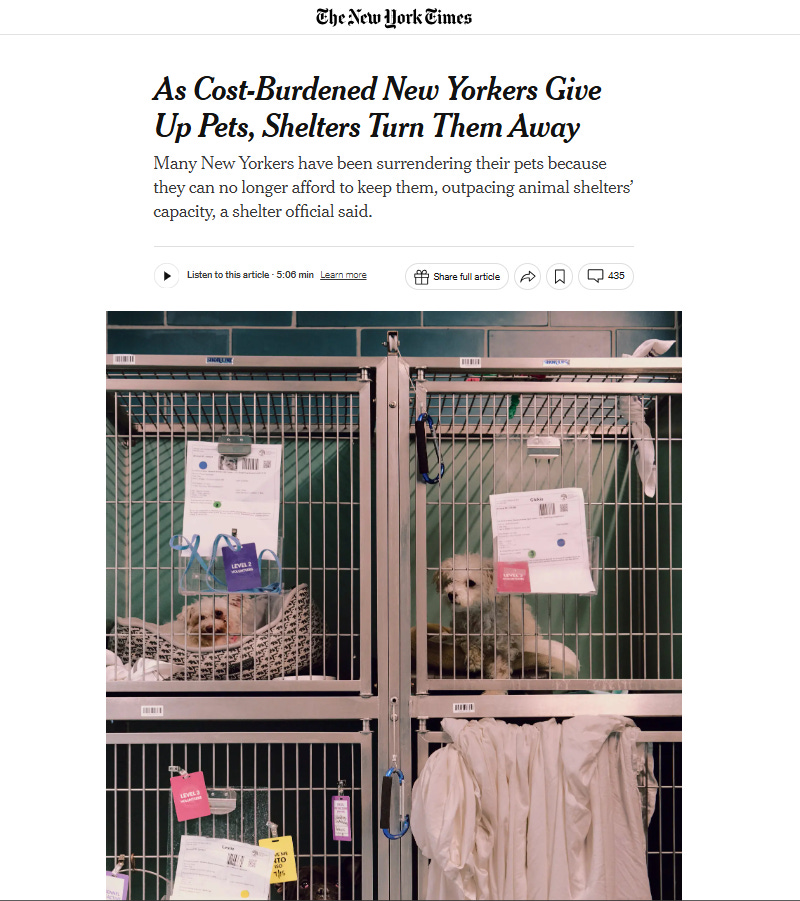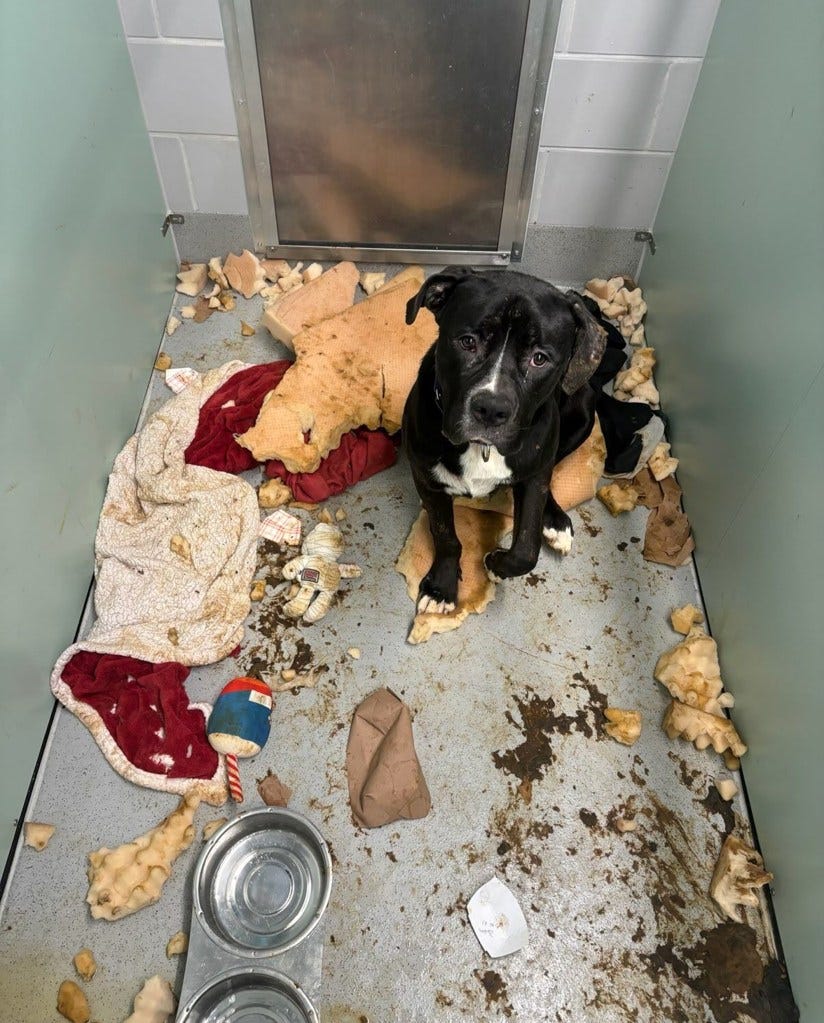Journalism Fails Animals
The Real Crisis in Animal Shelters Isn’t Overcrowding — It’s Mismanagement
Like other newspapers around the country, The New York Times reports a surge in pet surrenders as financially strained owners relinquish their cats and dogs, overwhelming the city’s animal shelters. According to reporters Liam Stack and Olivia Bensimon, the number of animals entering the system exceeds the capacity of facilities and staff, “forcing” New York City Animal Care & Control (ACC) to suspend intake due to overcrowding. None of it is true.
ACC is not experiencing an unprecedented number of intakes. Intakes remain well below pre-pandemic levels, and among the lowest since their inception. So far this year, ACC has taken in 24% fewer dogs and 29% fewer cats than it did in 2019. A simple search of the pound’s website would have demonstrated this, which the Times reporters failed to do.
The reporters also failed to note that New York City also has the largest adoption market in the nation, is located in the center of the nation’s wealth (along with California and Texas), has higher per capita revenues than every city in the U.S. except San Francisco, and partners with the ASPCA, one of the wealthiest animal charities in the world. In 2021, the ASPCA reported $390 million in revenue and $575 million in assets, comprising $310 million in investments and $105 million in cash reserves. When it comes to paying for programs to find adoptive homes, the sky’s the limit in New York City.
The problem isn’t a shortage of adoptions, a surge in surrenders, or limited finances, as ACC alleges and The New York Times parrots. It is that ACC refuses to run the shelter competently, and the ASPCA doesn’t want to spend money on helping animals.
Specifically, the article is a ruse by the city pound to deflect criticism for increased killing and the recent exposé in the New York Post that condemned it for neglect and abuse. Last year, a Post investigation found that despite New York City taxpayers spending $75 million on a new shelter in Queens, the animals languished in bloody cages with open sores, caked in fecal matter, and no access to fresh water.
Their follow-up investigation, one year later and published a couple of weeks ago, found that not much had changed: filthy kennels, animals dying in the cages without veterinary care, and abusive staff hurting animals. In one case, a cat “left to bleed for three days” before dying. In another, “a dog at the Queens shelter was allegedly choked so hard on a leash by a staffer that he collapsed…”
Like in The New York Times piece, the City offered nothing but excuses, blaming overcrowding on fewer adoptions. But that doesn’t explain the neglect and abuse. And as I explained to the Post reporters, low adoption numbers are a result of post-pandemic changes in shelter policy, including reduced adoption hours, appointment requirements, cumbersome visiting procedures, and a refusal to return phone calls from people interested in adopting. Unlike the Post, the Times reporters did not report any of this.
Aside from an epic failure of journalism to accurately report on this topic, the Times piece allows leadership and staff at the regressive and abusive pound to continue avoiding accountability by pointing the finger of blame outward.





I forwarded this post by Nathan to NY Times editors and referred to their article on the shelter situation in NYC. I said that I agreed with his assessment and that they needed to better. I also forwarded it to my NYC councilman, James Gennaro, to whom I have written to before. This is a great piece for anyone to forward to local media outlets if your local shelters are not managed well. It might help bring more media coverage to this situation. I have some others in mind now to send it to.
I have said this before and I will say it again, people who collect a paycheck off the backs of animals are not motivated to help them. Check into some of these shelters and rescues see how many are getting paid and how much, it will open your eyes to how much greed is in animal welfare. If more had to volunteer one of two things would happen, they would quit or they would get the animal problems cleaned up in short order.